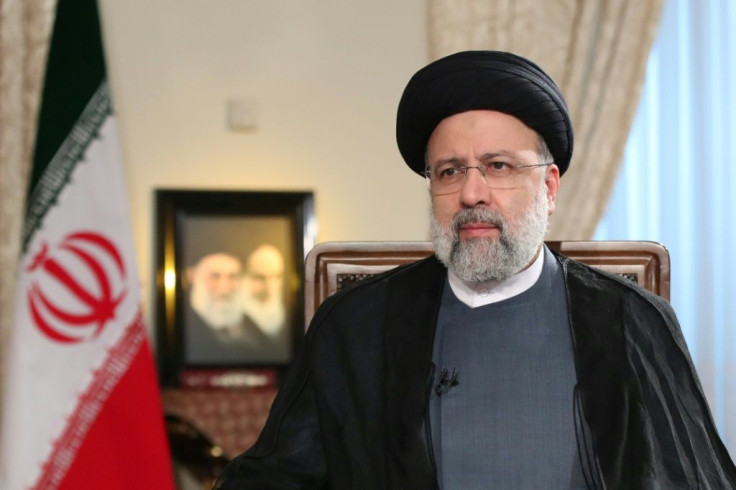Time To Hold Iran Regime To Account For 1988 Massacre Of Dissidents

In the summer of 1988, while living as a refugee in France, I received an alarming phone call from my father, who was a lawyer in Iran.
"All the families are worried about their loved ones languishing in prison," he said. "Visits have been banned for the past month. Still no news about your brother. They say the regime is eliminating all prisoners. It's unbelievable."
My father then said that the Iranian regime had formed a “crisis committee.” "The committee has four primary members. Its youngest is someone named Ebrahim Raisi. It operates out of Evin Prison, but it's supposed to visit Gohardasht Prison, too," he said
When I heard the name "Gohardasht," sweat began pouring down my forehead.
My brother Mahmoud, a university student studying architecture, was being held in Gohardasht. When my father visited him, he saw Hamid Noury, aka Abbasi. Noury was a member of the Islamic Revolutionary Guard Corps (IRGC) who was now the prison's assistant to the deputy prosecutor. Noury was known for his inhumane treatment of prisoners.
I was worried sick, but I continued to hold out hope. Reports from the main opposition Mujahedin-e Khalq (MEK) indicated that an extensive annihilation of prisoners was unfolding across the country.
I then found out that the four-member committee, the "Death Committee,” was going back and forth from Evin to Gohardasht prisons.
When I next talked to my father, he broke the news. Mahmoud had been executed. My family and I went into absolute shock.
Several years later, one of Mahmoud's colleagues, who had seen him on the day of his execution, gave me more details.
"They took us in front of the Death Committee on July 30," he recounted. "At around 7:00 p.m., Mahmoud was brought to a hallway that was later dubbed the ‘Death Corridor.’ He told others, ‘They asked me about the charges, and I said I am a supporter of the MEK.’"
"Mahmoud was in high spirits. Smiles and strength animated his face as he leaned on a heater in the hallway. He was chatting with others and laughing. At around 9:00 p.m., they took him, along with a large number of other prisoners, to the Death Corridor where Hamid Noury would line up prisoners and lead them to the execution halls. He was hanged that night."
Mahmoud was only 28 years old.
He wasn't the only one in our family who made the ultimate sacrifice to liberate Iran. My mother, Akhtar Molavi, 55, and a full-time member of the Resistance, was killed by the IRGC in western Iran in 1988. Five years earlier, my younger brother, Massoud, an 18-year-old student, was arrested. After enduring inhumane torture for two years, he was executed in Evin Prison at the age of 20.
Mahmoud is among the 30,000 victims of the 1988 massacre, over 90% of whom were members or supporters of the MEK. They were killed in the span of several months all over Iran. Their "crime" was staying loyal to the MEK's ideal of democracy.
Ruhollah Khomeini had stressed in his 1988 fatwa that anyone in prison who was steadfast in their support for the MEK must be executed immediately. At the time, the then-designated successor to Khomeini, Ayatollah Hossein Ali Montazeri, protest
Families like ours never received their loved ones' bodies. No death certificates were issued. And the regime continues to deny the true magnitude of the massacre. As the UN has confirmed, this crime against humanity is continuing because of the cover-up and harassment of the survivors. My father, who was under pressure because of the activities of his children, endured years of pain and suffering until his death two years ago.
Hamid Noury's arrest in November 2019 by Swedish authorities has given me the opportunity to lodge a complaint against one of the figures responsible for the murder of my brother 31 years ago.
Noury's trial started on Aug, 10 in Stockholm and will continue for about a year due to the large number of witnesses and complaints. It is a first step toward accountability, and I will testify in court on Oct. 14.
But beyond the trial, the international community must end the culture of impunity vis-a-vis the criminal mullahs ruling Iran. Instead of taking the presidency, Raisi must be tried before an impartial court. This is not only a legal imperative, it is also a humanitarian and ethical one to safeguard values for which contemporary humanity has paid a heavy price—including millions of innocent lives.
Mahnaz Meimanat is a human rights activist living in France





















